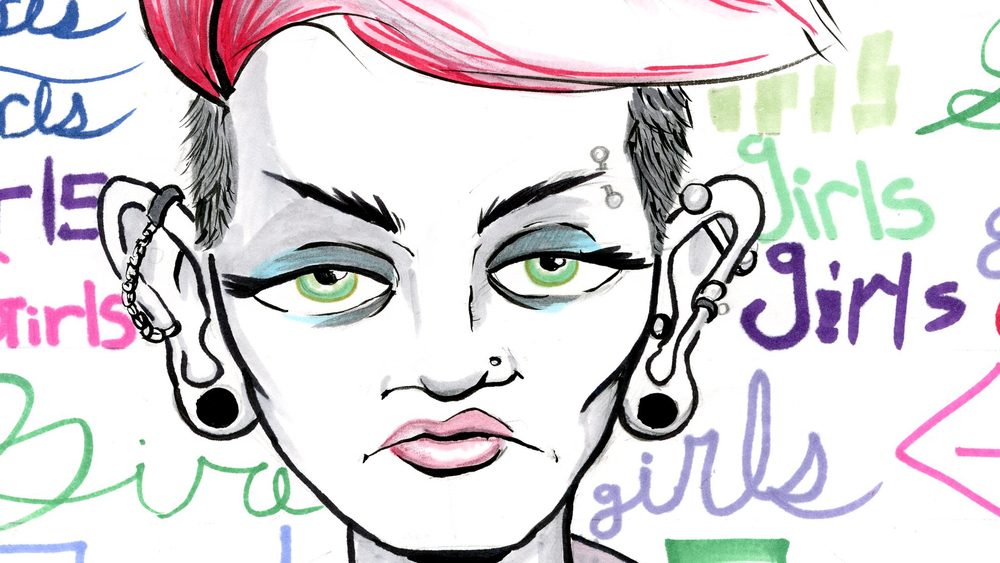
Artwork for the Feminist Monologues companion zine. Artist: Spencer Greenberg (2016)
A Director’s Love Letter to The Feminist Monologues
By: Kellina Moore ’18
During the first read-through rehearsal for The Feminist Monologues, seventeen women (myself included) squished into a misshapen circle on the floor of a classroom and stood, one by one, to read their pieces. The motions were simple, the room was simple, and many of us were dressed in sweatpants—but I swear to you that from the moment we started there was not a dry eye in the house. That was the first time that I realized that what we were doing was important. That what we are doing is important.
At its core, The Feminist Monologues is a show about people sharing their stories. Of course, all theater is concerned with telling stories. But these stories are told in a way we don’t often get to hear in such volume—they are the voice of the individual. The beauty of having a show comprised almost entirely of monologues is that each person is their own narrator and character. Each piece has its own beginning, middle, and end, and every one of these stories shares something important: a unique perspective. Watching these seventeen pieces is (hopefully) a way to experience, in a single night, the way in which seventeen unique people view and engage with the world.
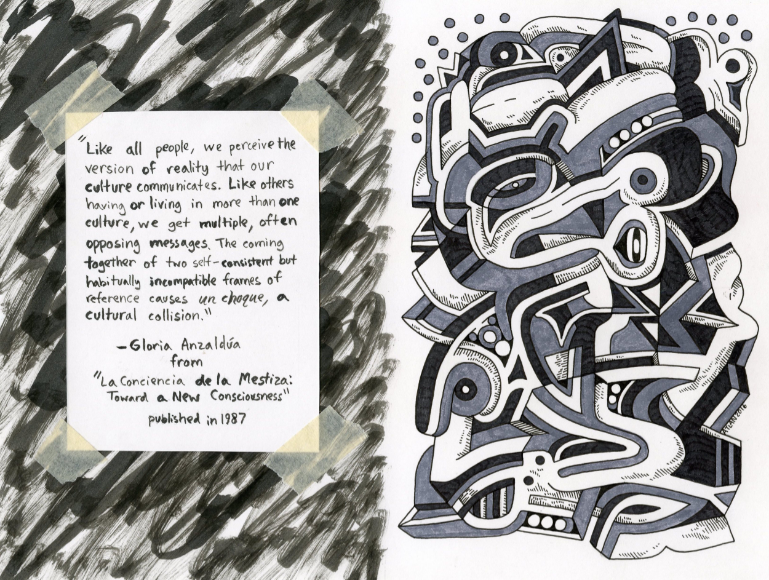
Artist: Atlan Arceo-Witzl (2016)
Then again, it’s not just seventeen people. An essential part of this year’s show in particular is trying to include as many different perspectives as possible. This is a show that is auditioned for before a script exists. The text is created collaboratively, both by the cast themselves and by anonymous writers. Even at this stage of the process, we made sure to try and include as diverse a range of perspectives as possible, because although the show is about telling the stories of the students on this campus, it is also about creating a larger dialogue about how we interact with feminism, both on this campus and beyond. Now more than ever, the discussion about feminism and what it means to believe in gender equality is changing rapidly, and the show seeks to incorporate these changing perspectives.
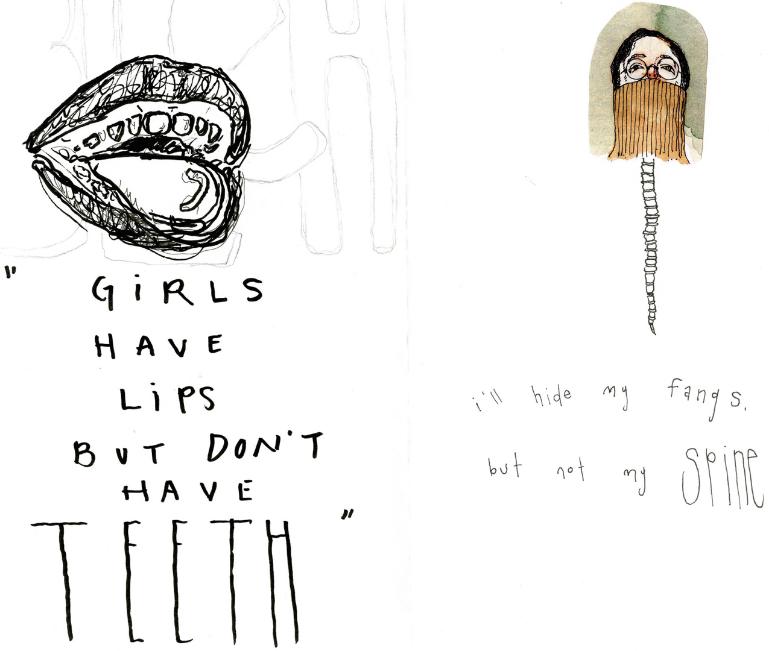
Artist: Nell Mittelstead (2016)
While this journey to include as many perspectives as possible was heavily reliant on the audition process and creation of the script, we also strived to include more differing views by organizing companion pieces, so those not directly contributing words to the show could still have their voices heard. This was done primarily through the wonderful power zines. We have distributed mini-zines made by members of the Feminist Action Network throughout the Skidmore community, and also plan to distribute a larger companion zine to those who attend the show, which includes pages made by those in the cast as well as outside artists. Illustrations from the zine have been used for this article. The issues surrounding the show are monumentally important to so many people, so we wanted to create a safe platform for as many individuals as possible to express themselves.
While it is important to create a large group of voices that all empower one another, it is also essential to put these in the context of the voices that are constantly trying to silence them. The show deals with the unfortunate truth that the way we see ourselves and the way others see us are sometimes at odds with one another. I would dare to say that they are almost always at odds with one another. So, rather than setting out to tell the story from just one side, we made an effort to illustrate why these stories are important through the representation of multiple identities on stage: the identities we claim for ourselves, and those which are chosen for us. It is inherently powerful to hear someone declaring that they are strong, but it is all the more significant to hear that self-declaration made in the face of someone calling them weak.
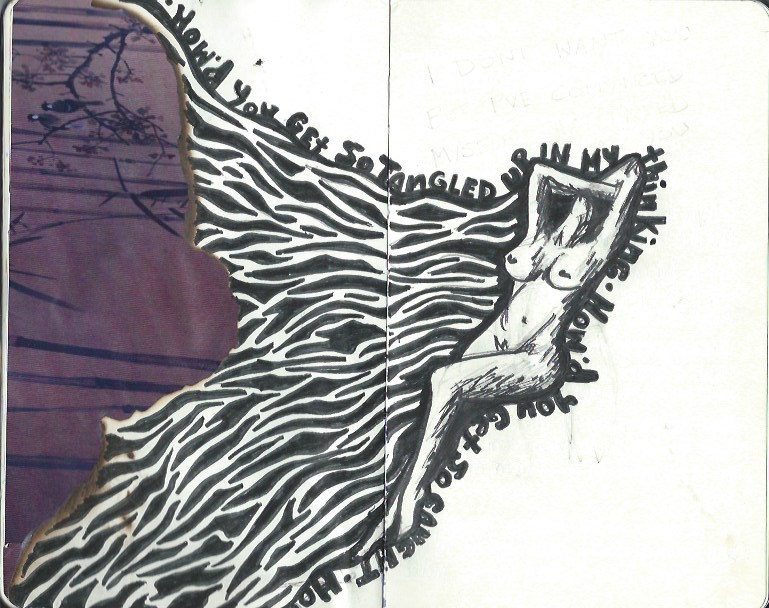
Artist: Claire Johnson (2016)
The way we decided to represent these conflicting identities on stage is through the use of projections. The idea behind it is that there is an actor, standing, projecting their own identity to the audience, while another identity is physically projected back onto them. We wanted to represent the fight that happens every day between trying to claim a positive identity for ourselves and those who are constantly trying to rip our identities away from us.
I hope this show feels as significant to those who come to see it as it feels to me. We were ambitious in our goals for it; we wanted it to create a safe space for dialogue and empowerment within the production itself and for all who came to see it. On a liberal arts college campus, these discussions are of course already happening. This clash between perspectives happens every day. This show, then, is an attempt to centralize and magnify these occurrences so they can be presented in a way that fully demonstrates their significance. Our stories deserve to be center stage. We deserve to be heard. This show is a place for that to happen.
***
The Feminist Monologues, an annual student-organized project, performs April 1st and 2nd in JKB Studio A. Performances begin at 8pm, with a Saturday matinee beginning at 2pm. For ticketing information, click HERE.
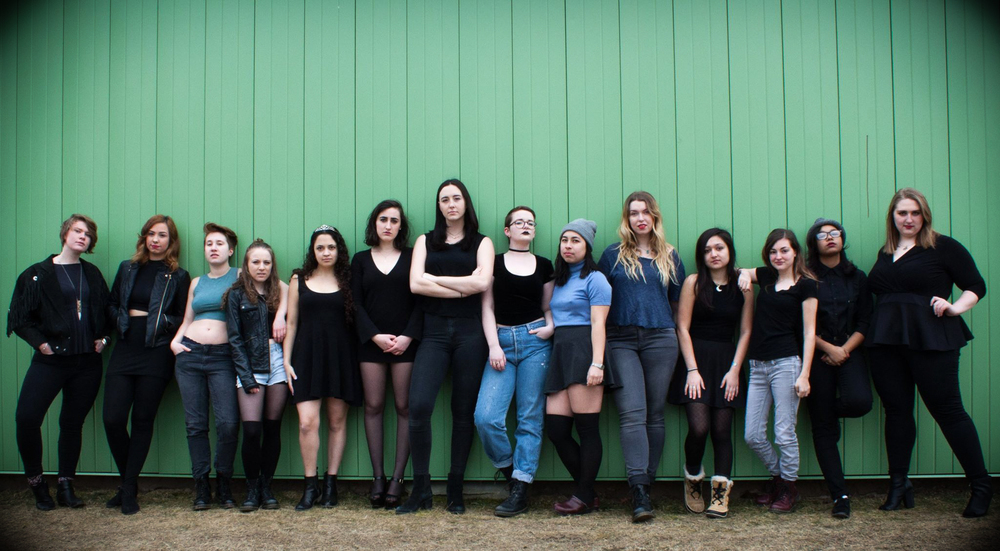
From Left: Hannah Wilson, Anna Parsons, Eve Stewart, Caity Cook, Emmy Kuperschmid, Hannah Seidlitz, Emma Sturdevant, Kellina Moore (the author), Margot Friedman, Sam Grant, Nina Slowinsky, Talia White, Devin McDonough, and Mira Klein. Photo: Mira Klein
Kellina Moore is a sophomore English/Religious Studies double-major, a staff writer for the Living Newsletter, and co-director of The Feminist Monologues.
